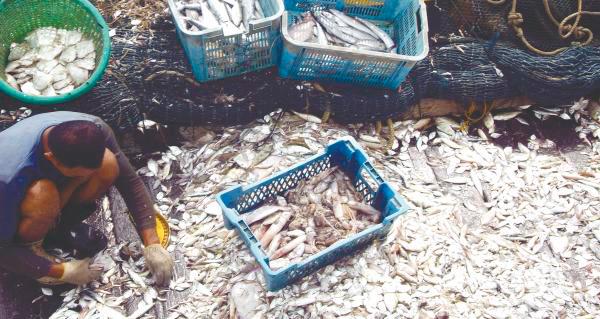PETALING JAYA: A shortage of tekong, or deep-sea boat captains, in the country has affected local fish supply, and in the long term will push up fish prices, said Fisheries Department communications head Mohd Nizam Ismail.
He said a tekong must have a licence to steer a deep-sea fishing vessel from the Malaysian Marine Department and a permit from the Fisheries Department.
He said in 2023, the most sought-after Malaysian fish were selayang, cencaru, tenggiri, selar, ikan kembung, ikan aya, and ikan kerapu because of their affordable prices and nutritive value.
“In 2022, we had 116,613 deep-sea fishermen of whom 29,123 or 25% were foreigners but the numbers have been declining since 2010. Each fishing vessel lands an average of 420 metric tonnes of deep-sea fish a year.”
He said those significantly affected by the lack of tekong are the crew who depend on deep-sea fishing for their income, adding that with fewer tekong and the reduced number of fish landings, the crew are currently hard-pressed to earn an acceptable living.
“One reason for the decrease in the number of tekong and fish harvesting is a lack of interest in deep-sea fishing due to the increase in diesel fuel and oil prices as well as operational costs.”
Nizam said various factors influence the fishing community’s involvement in deep-sea fishing.
“Their daily income is uncertain and does not offer fishermen stability, and they do not consider fishing as a viable profession. Fishing activities are unpredictable, with incomes often dependent on weather conditions, fish availability and market demand.
“As traditional fishing becomes less viable, people are likely to seek alternative livelihoods that offer more stable incomes and better working conditions.
“This may result in a decrease in the number of individuals who choose to enter the fishing industry.”
He said some people may also be deterred from entering the fishing industry because of the perception that modern fishing practices are highly competitive and require large investments in technology and equipment.
“Understanding this, the Fisheries Department provides training and courses at the Malaysian Fisheries Academy to manage fishing vessels and improve fishing skills.
“A total of 423 trainees have followed our programme between 2001 and 2010.”
Nizam said the Fisheries Department currently faces challenges in attracting applications from those interested in fishing while some candidates who applied could not meet the conditions set for the courses.
He said the department has also striven to ensure the sustainability of the fisheries sector through efficient and holistic management of resources, and by encouraging responsible fishing practices.









